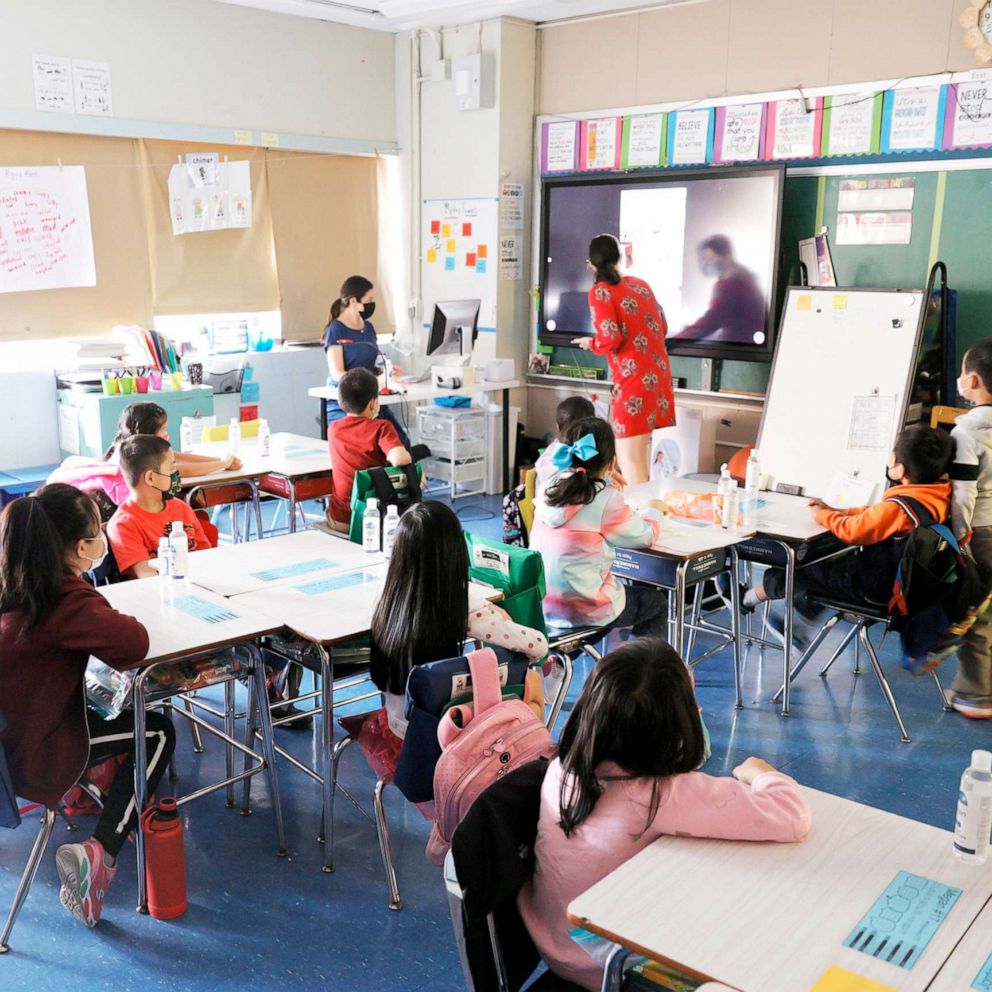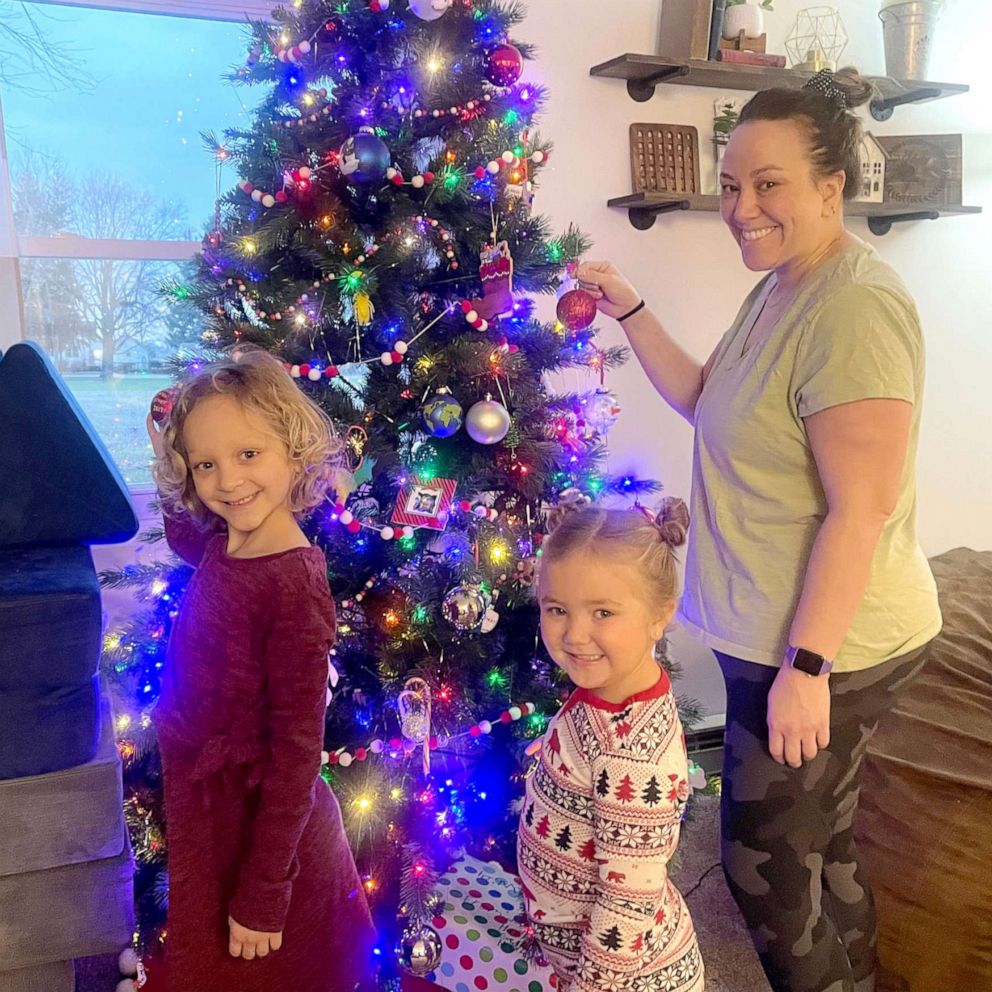Tips for parents of kids under 5 as COVID-19 cases rise and vaccine is delayed
A COVID vaccine for kids under 5 is now not expected until 2022.
The spread of the omicron variant and the recent rise in COVID-19 cases across the country combined with the upcoming holiday presents a particular challenge for parents of children under the age of 5.
Nearly two years into the coronavirus pandemic, that age group is the only one not yet eligible to be vaccinated against COVID-19.
Pfizer-BioNTech announced last week that it plans to amend its ongoing clinical trials for children under age 5 to add a third dose, which means a vaccine for younger children will not be available until well into 2022.
"Heading into the holiday season, heading into what would be called the fifth wave of [the pandemic], I think we're all just really tired," said Dr. Claire Boogaard, mother of a 4-year-old who is waiting to be vaccinated and pediatrician and medical director of the COVID-19 Vaccine Program at Children's National Hospital in Washington, D.C. "I just completely empathize with the exasperation that many parents felt on Friday."
The news of the delayed vaccine also comes as the U.S. sees a rise in pediatric cases of COVID-19, along with adults.
Last week, nearly 170,000 children tested positive for COVID-19, up by about 28% in the last two weeks, according to a report released Monday by the American Academy of Pediatrics and the Children’s Hospital Association. That marks more than four consecutive months that the weekly pediatric COVID-19 case total has been above 100,000.
As families weigh how best to protect their young children and keep older loved ones safe, here are four things for parents to know, according to Boogaard and Dr. Sean O'Leary, a pediatrician and vice chair of the AAP's Committee on Infectious Diseases.
1. The vaccine delay is a good sign, even if frustrating.
Pfizer/BioNTech said last Friday they hope to have data with a third shot in the first half of 2022.
The data from earlier clinical trials, which studied two doses of the COVID vaccine at smaller volume, found the two doses were not as effective for 2 to 5-year-olds as they were in older populations, which prompted Pfizer/BioNTech to study adding a third dose to increase the effectiveness of the vaccine.
There were no safety issues reported in the early data analysis, according to the company.
"The good news that I took away from it, even being a little exasperated myself, was that it does show there's a lot of care and concern that's placed into these studies, and that they're not pushing something out that's not going to work or that's not going to be safe," Boogaard said. "So even if we do have to wait for the 2 to 4-year-olds to be able to get it, we want to make sure that the dose that they get is safe and effective at preventing illness and the spread of the disease to the community."
Boogaard added that when the vaccine is available to children under 5, she will be getting her child vaccinated.
"If the vaccine proves to be safe and effective, my child will be the first in line, as soon as I can get him an appointment," she said. "He deserves to go out to birthday parties, to play inside with neighbors and to go to school regularly without interruption."
2. Vaccinated family members can mostly gather with kids under 5.
For the most part, if your loved ones are vaccinated, it is safe for them to interact with kids under age 5, according to both Boogaard and O'Leary, also a professor of pediatrics at the University of Colorado and Children's Hospital Colorado.
"If everyone is vaccinated, particularly if they're boosted, I would be very comfortable with a family gathering because the risk of severe disease and hospitalization is very, very low in those individuals," said O'Leary, adding that each family needs to make their own decisions based on not only vaccination status but also factors like the health of individual family members.
"If there are unvaccinated people or if there are people, for example, who have immunocompromising conditions, who may not respond to the vaccine, that's a different risk calculus there because those folks are at risk for severe disease," he said. "Those families do have to be quite a bit more careful."
O'Leary noted that particularly because the omicron variant is proving to be so contagious, the overall message for families is, "Anybody that's not vaccinated needs to get vaccinated as soon as possible."
During holiday gatherings in particular, Boogaard said it's important to talk with family members ahead of time and evaluate the risks of gatherings.
"Try to minimize any impact your unvaccinated kids would have to anyone that could share the disease with them, so that someone who's symptomatic or someone who's unvaccinated because they're going to be the highest risk," she said. "However, if you're someone who is in a household with mostly vaccinated healthy adults, your risk tolerance might be different, so it's just talking with your family ahead of time."
3. Families need to continue practicing safety protocols like mask wearing.
People over the age of 2 should continue to wear face masks when in indoor public settings, according to O'Leary, who added that for families with unvaccinated children, even large, indoor events with masks required are "a bit risky right now."
Boogaard noted that her family is focused on preventing their 4-year-old from being exposed to COVID-19, which means in addition to mask wearing, they are all also following safety guidelines like hand washing and testing.
"These are the things that we've been doing for the better part of a year-and-a-half, which is trying to keep masks on kids' faces, trying to keep kids out of poorly-ventilated or crowded areas, to wash our hands and to use hand sanitizer," Boogaard said. "And if you have the ability to test before you visit anyone, do so, but of course if you have symptoms you have to get tested to make sure that it's not coronavirus."
4. Children under 5 need to get their standard vaccines, too.
While the wait continues for the COVID-19 vaccine to be available to children under age 5, those children need to be kept up to date on their regular vaccines, according to O'Leary.
"Make sure that your kids are up to date on their other vaccines because, frankly, a lot of diseases that we vaccinate kids for are actually more severe in kids than COVID," he said. "We've seen a dip [in vaccinations] as a result of the pandemics so we want to make sure kids are up to date."
"And also make sure that everyone in the family gets a flu shot because we're expecting a significant winter surge with flu too," O'Leary added.







